Compare your DNA to 165 Ancient Civilizations
FIND THE HISTORY OF YOU
So, you've got your DNA results? To discover who you really are, you need to know where you come from. We can take your DNA results one step further through the use of advanced archaeogenetics
How It Works
Uncovering your ancient ancestry is simple with our three-step process.

Take a DNA Test
Get tested with one of the major DNA testing companies (e.g. AncestryDNA, MyHeritage, FamilyTreeDNA, DanteLabs etc.).

Download Your Raw Data
Download your raw DNA data file from your testing provider's website. We support all major formats.

Upload & Explore
Upload your DNA file to our secure platform and receive your detailed ancestry analysis within minutes.
DIG DEEP
Into Your Ancient History
Is this your Ancestor?
Your DNA will be compared to over 11,000 Ancient Individuals.
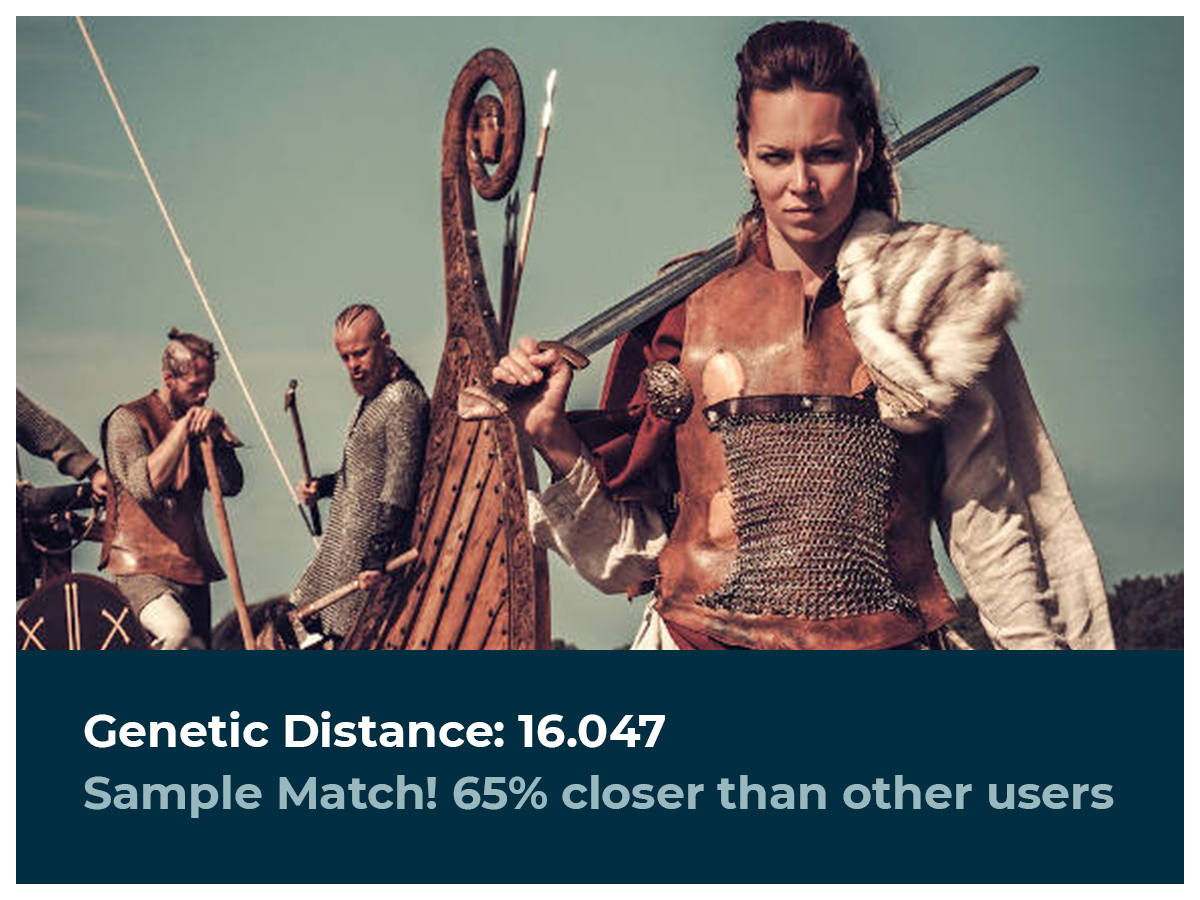
VIKING HIGH-RANKING BIRKA SHIELD-MAIDEN
brk581 (950 AD) mtDNA Haplogroup: T2b
The Birka Viking warrior was a woman buried in the 10th century, in Birka, Sweden, and discovered in the 1870s. The grave was assumed to be a "battle-hardened man" for 128 years, until DNA analysis proved she was actually a high-ranking professional warrior.
See Your Ancient Past in Action
Our selection of interactive maps will show you where, and when your genetic ancestors lived.
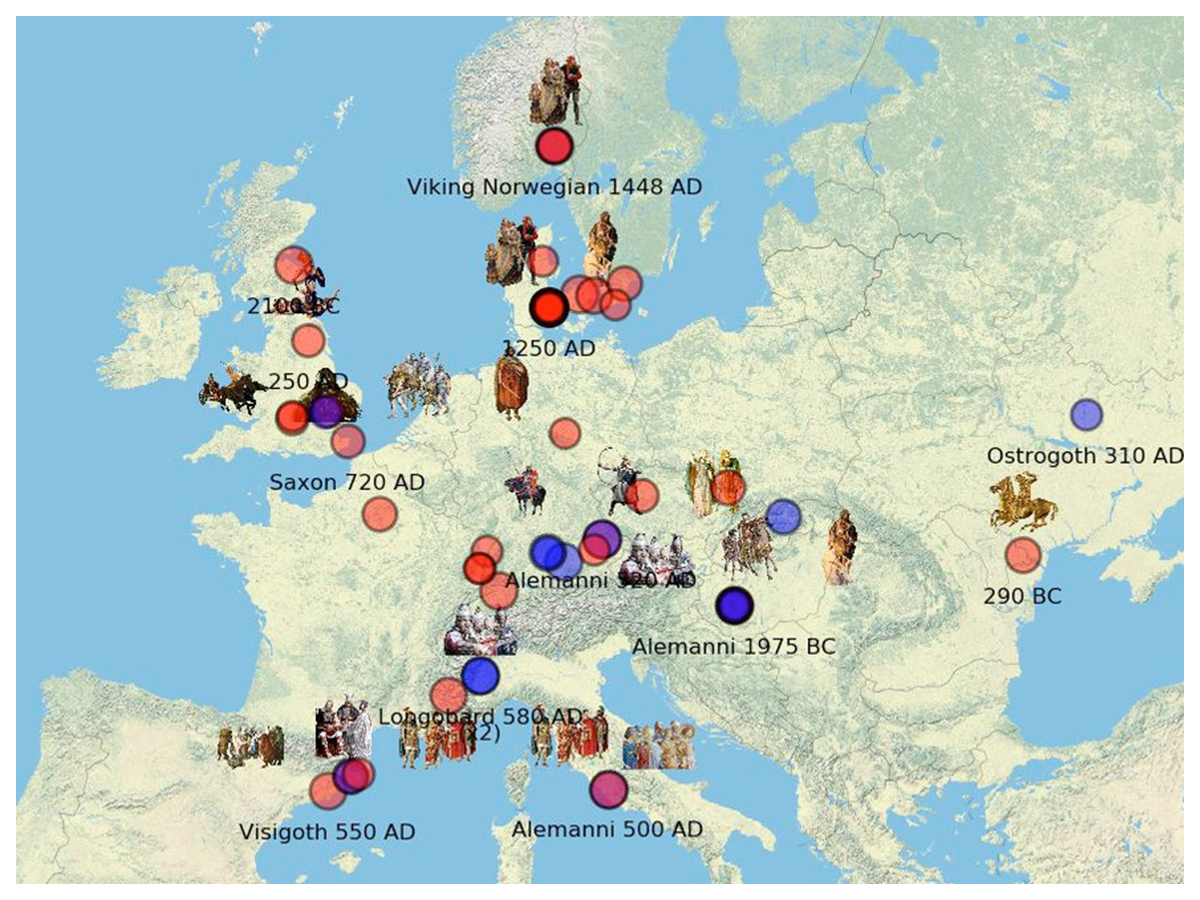
You can also journey through time with our ancestral timelines. With this tool, you can search your matches by ancestry, or direct DNA segments.
Why Choose MyTrueAncestry
Discover what sets our ancient DNA analysis apart from traditional ancestry services.

100% Anonymous Insights
All retained data is fully anonymized, ensuring your privacy is completely protected.

Powered by Real Ancient DNA
The only service powered by real ancient DNA samples from all over the world and advanced archaeogenetics technologies.

Try For Free
Our basic analysis is 100% free for you to try with no payment method required.
BROWSE OUR DNA SPOTLIGHTS
Roman Gladiators from York
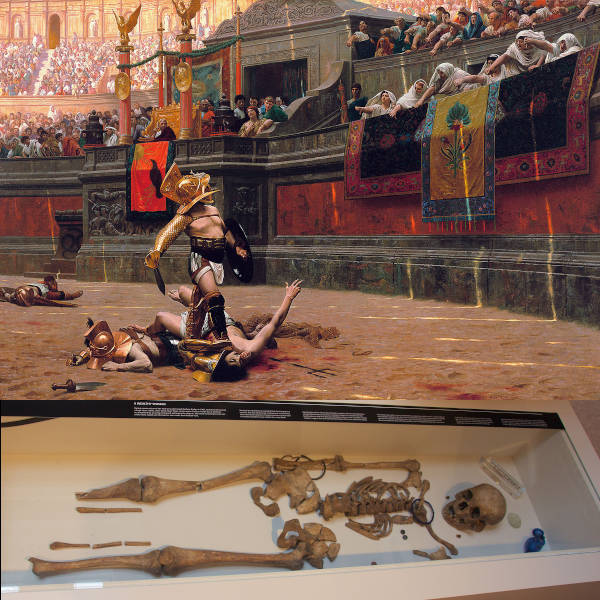
The Roman conquest of Britain began in 43 AD but resistance in the north
was fierce. Roman General Quintus Petillius Cerialis led the 9th Legion into the
north and founded Eboracum in 71 AD (which became York) Originally Eboracum was
intended to be a military fortress aligned along the river Ouse measuring about
50 acres in size. This wooden camp was upgraded to stone in 108 AD and
garrisoned by the 6th Legion. The famous Emperor Hadrian reportedly visited
Eboracum in 122 AD in order to plan his great walled frontier, which would be
named after him. Emperor Septimus Severus visited in 208 AD and made it his
private base while campaigning against Scotland, and he became the first of
three Roman Emperors who would die in Eboracum. In 237, the town became a
colonia, the highest legal status any Roman city could attain as Eboracum was
the largest town in the north and the capital of Britannia Inferior. This is
exactly the time period from when these 7 gladiators hailed.
Detailed analysis of these gladiators from York revealed some fascinating
results. The bones showed various degrees of wear and tear as one might expect
from the dangerous sport: 6DRIF-18 revealed a spinal fracture of the first
vertibrae, 6DRIF-21, 6DRIF-3, and 3DRIF-16 meanwhile have fractured forearms,
ankles and wrists. 6DRIF-22 has a skull injury as well as a stab to the neck -
his extra vertebrae did not seem to assist with his fate. 6DRIF-23 meanwhile had
4 cuts to his jaw and was fully decapitated - clearly not the best fate to have.
Last but not least 3DRIF-26 is fascinating indeed - he had a left shoulder
injury, fractured ribs, damage wrists - and from a genetic standpoint is a
deviation from the rest. His background compared to ancient samples from the
time period matches very close to Ptolemaic Egyptians or the Near East.
Read more here
High Ranking Birka Shield-maiden
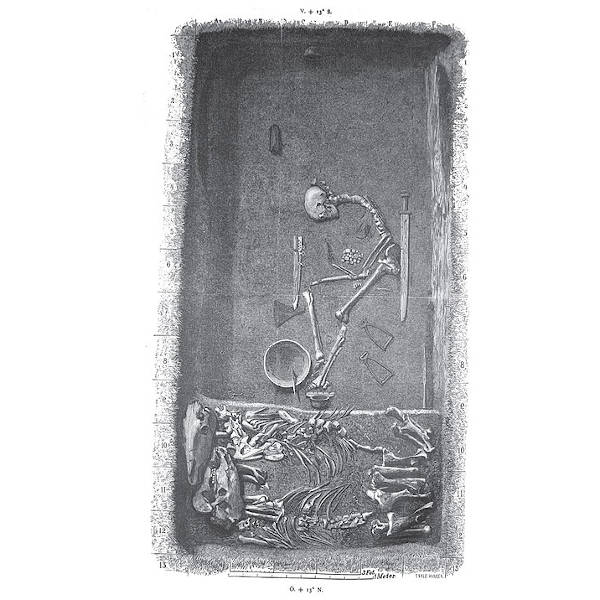
The Birka female Viking warrior was a woman buried in the 10th century in
Birka, Sweden and discovered in the 1870s. The grave was assumed to be a battle
hardened man for 128 years until DNA analysis proved she was actually a
high-ranking professional warrior. Shield-maidens are female warriors that take
on male roles including wielding weapons and are depicted in many period
figures, tapestries and brooches as well as mentioned by the famous Danish
historian of the time, Saxo Grammaticus.
The grave chamber was made of wood and approximately 3.45m long and 1.75m
wide. The body was in a sitting position and found earing garments of silk and
silver. The grave contained a sword, an axe, a spear, armor-piercing arrows, a
battle knife, two shields, two horses, one mare and one stallion. The grave also
contained a game set with a board and pieces. This is considered evidence of her
strategic thinking and indicating she was an officer who could lead troops into
battle.
Read more here
Danish Viking Clan
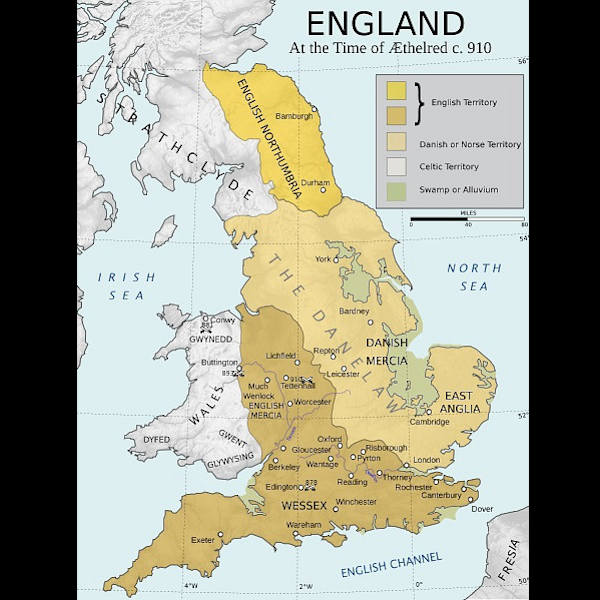
Beginning in the 8th century, the Danes began a long era of well-organized
raids across the coasts and rivers of Europe. Large areas outside Scandinavia
were settled by the Danes including what became know as the Danelaw in England,
the Netherlands, northern France and Ireland. Two Viking warriors from the same
clan separated for more than 1000 years and have finally been reunited at the
Danish National Museum in Copenhagen.
Danelaw was established as an area ruled by Vikings and extended across
much of England. A group of fairly young Viking warriors was found here buried
in a mass grave near the church where they had been killed by orders from King
Aethelred II, King of the English. The warrior hilighted here was in his 20s and
died from injuries to his head. He had sustained 8 to 10 hits to the head and
several stab wounds to the spine.
Read more here

Join Our Community
New content is frequently released, and one of the best ways to stay connected is through our Instagram or Facebook pages. Connect with our global community today, and dig deeper into your ancient past.
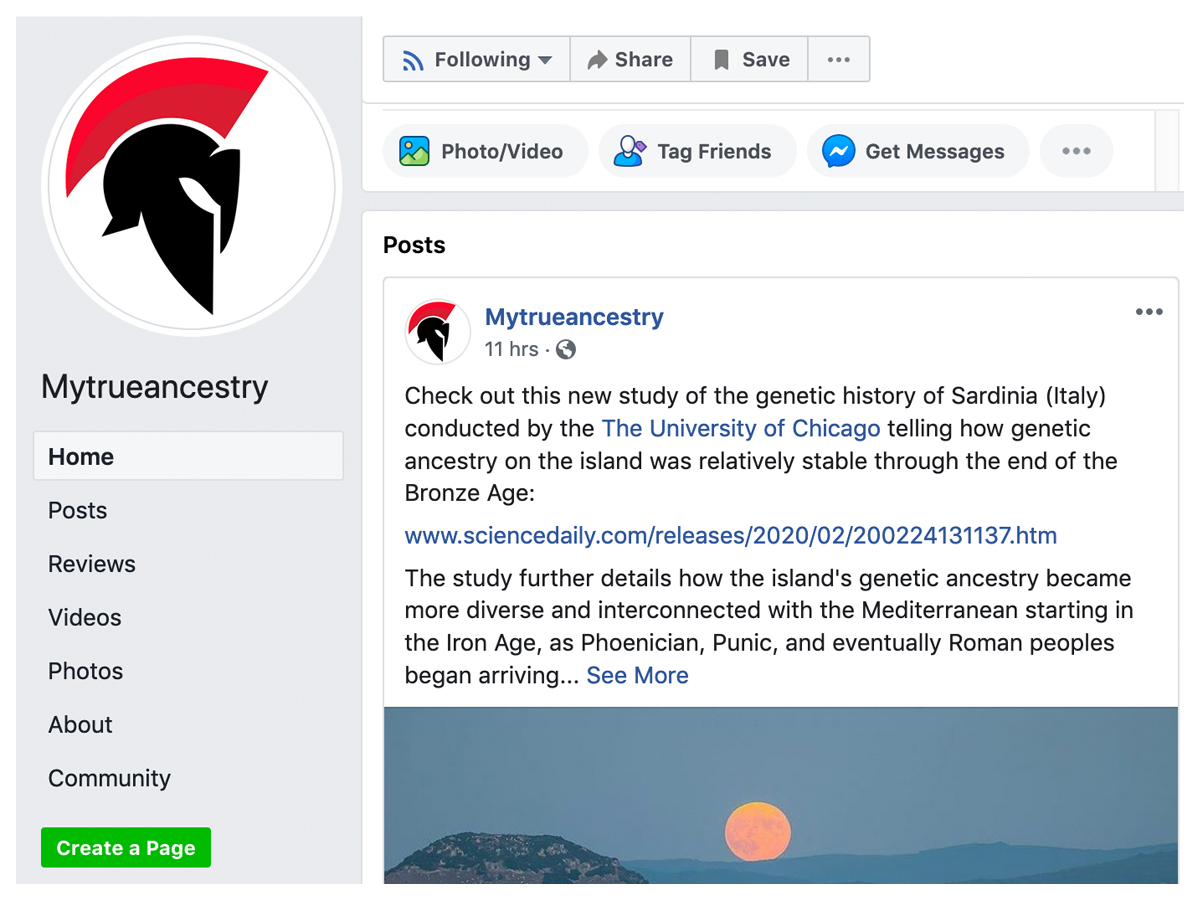
In the press...
Also Featured on:

Contact Us:
EMAIL
INFO@MYTRUEANCESTRY.COM
MAILING ADDRESS
MyTrueAncestry AG
Seestrasse 112
8806 Bäch
Switzerland


